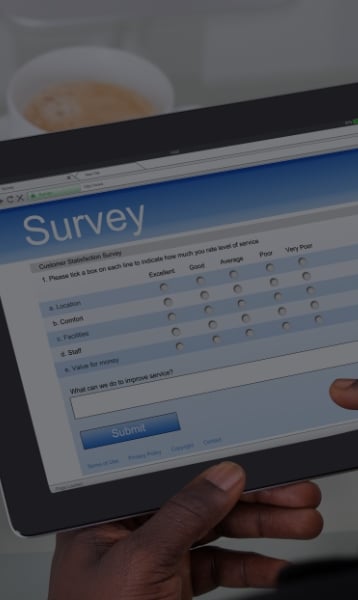The benchmarking portal gives you access to all reports available for STD, LTD, FML & WC.
Alleviating Loneliness in the Workplace Through Informed Benefit Policies


Jennifer Santisi
The Integrated Benefits Institute hosted a webinar examining the connections between loneliness, anxiety, and depression among US workers. Guest speaker Christin Kuretich, VP of Supplemental Products at Voya Financial, offered an employers’ perspective on supporting employees and tailoring benefit plans.
IBI’s analysis found that employees who experience frequent loneliness are 6.4 times more likely to experience anxiety and depression. In the workplace, loneliness can manifest as social isolation from colleagues, leading to reduced job performance, lower job satisfaction, and increased turnover intentions.
“Remote workers reported lower odds of anxiety and depression. Flexible arrangements such as working from home 3-4 days showed a 27% reduction in the risk of anxiety and depression. However, work location alone doesn’t drive mental health outcomes, instead it’s likely the flexibility paired with supportive policies helps to alleviate stress,” explained IBI Researcher Carole Bonner, MSET, MSAS who was the lead researcher on this project.
The work environment plays a critical role in either mitigating or exacerbating feelings of loneliness. Factors such as job design, organizational culture, and work arrangements (e.g., remote vs. in-office) can influence the extent to which employees feel connected to their colleagues.
“These findings really reflect the broader shifts that we’re seeing in the benefits landscape. The traditional one size fits all clearly isn’t meeting the diverse needs of the workforce today,” shared IBI President Jim Huffman.
Mental health and loneliness in the workplace has significantly shaped benefits programs over the past few years. “The pandemic showed us that, for better or worse, this was an issue that was not going away,” shared Christin. “I was introduced to the research on loneliness during the pandemic…We need to find practical ways to address this, because we’re risking significant health issues and it’s having a massive impact on individuals.”
A thread Christin has noticed woven into the research on loneliness is the idea of providing language and psychological safety for people to voice these feelings and put a name to it. “It only perpetuates loneliness when you have no idea how to talk about it,” she said. “Hearing others share might spark something for you to say you’re feeling that too, and now suddenly you’re not as alone.”
Christin emphasized that one of the easiest ways to assess this issue is by examining hospitalizations or disabilities related to mental health. The insurance might cover the costs for hospital stays, but historically does not provide benefits for situations involving self-harm, which presents a contradiction. The inconsistency has persisted in contracts for decades, so now is an opportune time to review and revise these policies.
An organization’s culture plays a critical role in fostering psychological safety through compassion and kindness, letting employees know this is a place where they can prioritize their health and their family’s health. It’s helpful to let employees know that “missing work doesn’t mean we don’t think you’re not dedicated to your job; we support what you’re going through and we want to support how you work most effectively,” coached Christin.
Christin also emphasized that benefit plans are something prospective employees look at closely, and may make or break whether they take a job. “Peer support groups, family counseling, these are starting to become necessary when taking a job,” she said. “An employee who is a working parent with a special needs child, they’re going to ask themselves ‘can I do this job?’ and they’re going to look at leave policies, employee resource groups, and some of the newer solution-focused benefits.”
In conclusion, the IBI webinar highlights the critical role of customized benefit policies in tackling workplace loneliness and its effects on mental health. By implementing flexible work arrangements and supportive practices, organizations can mitigate the risks of anxiety and depression while fostering meaningful connections and a sense of psychological safety.
As the needs of employees become increasingly diverse, sticking to a one-size-fits-all strategy for benefits is no longer effective. Employers need to evolve by updating their policies, providing peer support, and encouraging open dialogues about mental health. Cultivating a compassionate culture not only bolsters employee well-being but also improves retention and engagement, ultimately leading to healthier, more resilient workplaces.
- February 2025 (1)
- December 2024 (2)
- March 2024 (1)
- January 2024 (1)
- October 2023 (3)
- September 2023 (1)
- July 2023 (1)
- May 2023 (1)
- April 2023 (1)
- February 2023 (1)
- January 2023 (1)
- December 2022 (1)
- November 2022 (1)
- October 2022 (1)
- September 2022 (1)
- August 2022 (2)
- July 2022 (1)
- June 2022 (3)
- May 2022 (2)
- April 2022 (1)
- March 2022 (2)
- February 2022 (1)
- January 2022 (1)
- December 2021 (1)
- November 2021 (1)
- October 2021 (1)
- August 2021 (1)
- July 2021 (2)
- June 2021 (1)
- May 2021 (1)
- April 2021 (1)
- February 2021 (1)
- January 2021 (3)
- August 2020 (1)
- July 2020 (3)
- May 2020 (1)
- April 2020 (4)
- March 2020 (4)
- February 2020 (1)
- January 2020 (1)
- November 2019 (2)
- July 2019 (4)
- June 2019 (3)
- May 2019 (2)
- April 2019 (2)
- March 2019 (3)
- February 2019 (7)
- January 2019 (9)
- November 2018 (6)
- October 2018 (3)
- September 2018 (3)
- August 2018 (2)
- July 2018 (4)
- March 2018 (22)
- February 2018 (1)
- October 2017 (1)
- September 2017 (1)
- August 2017 (1)
- July 2017 (1)
- June 2017 (3)
- May 2017 (2)
- April 2017 (1)
- March 2017 (29)
- February 2017 (1)
- January 2017 (1)
- December 2016 (3)
- November 2016 (2)
- October 2016 (1)
- August 2016 (3)
- May 2016 (2)
- April 2016 (8)
- February 2016 (29)
- January 2016 (1)
- December 2015 (2)
- July 2015 (4)
- June 2015 (6)
- May 2015 (1)
- April 2015 (1)
- March 2015 (22)
- February 2015 (1)
- January 2015 (1)
- December 2014 (1)
- November 2014 (1)
- October 2014 (2)
- September 2014 (1)
- August 2014 (3)
- July 2014 (2)
- June 2014 (1)
- May 2014 (2)
- April 2014 (4)
- March 2014 (8)
- February 2014 (1)
- January 2014 (1)
- December 2013 (2)
- November 2013 (2)
- October 2013 (4)
- August 2013 (1)
- July 2013 (3)
- May 2013 (13)
- March 2013 (2)
- February 2013 (9)
- January 2013 (1)
- December 2012 (1)
- November 2012 (1)
- June 2012 (1)
- May 2012 (1)
- April 2012 (1)
- August 2011 (1)
- June 2011 (3)
- May 2011 (1)
- April 2011 (2)
- March 2011 (1)
- February 2011 (2)
- November 2010 (1)
- October 2010 (1)
- June 2010 (1)
- March 2010 (1)
- January 2010 (2)
- October 2009 (1)
- July 2009 (1)
- May 2009 (2)
- March 2009 (1)
- January 2009 (1)
- November 2008 (1)
- October 2008 (2)
- September 2008 (1)
- August 2008 (1)
- June 2008 (1)
- May 2008 (1)
- April 2008 (2)
- March 2008 (1)
- February 2008 (1)
- January 2008 (2)
- December 2007 (1)
- November 2007 (1)
- October 2007 (1)
- September 2007 (1)
- August 2007 (1)
- July 2007 (1)
- June 2007 (1)
- May 2007 (2)
- March 2007 (1)
- February 2007 (1)
- January 2007 (1)
- August 2006 (1)
- June 2006 (1)
- March 2006 (1)
- May 2005 (1)
- July 2004 (1)
- 2019 (1)
- 2020 (1)
- Absence (2)
- Absence Management (4)
- Article (105)
- Behavioral Health (2)
- Benchmarking (9)
- Benefit Design (11)
- Benefits + Plan Design (26)
- Blog (72)
- Burnout (1)
- Business Performance (2)
- Business Value of Health (21)
- Cancer (3)
- Cardiovascular Disease (4)
- Care Management (1)
- Care Quality (1)
- Caregiving (3)
- Case Studies (7)
- Chronic Conditions (2)
- Communicating H&P to Business Leaders (1)
- Community Health (2)
- Comparative Effectiveness Research (1)
- Connecting HR to Operations (1)
- COVID-19 (13)
- Culture of Health (1)
- Culture of Health + Safety (29)
- Data (1)
- Data Driven Decision Making (1)
- Depression (5)
- Diabetes (5)
- Disability Leave (41)
- Disease Burden (1)
- Employer Perspectives (5)
- Engage Employees (45)
- Event Recap (2)
- Exchanges (4)
- Family + Parental Leave (8)
- FMLA (2)
- Headache (1)
- Health + Productivity Management (54)
- Health Inequities (1)
- Healthcare (2)
- Healthcare Costs (17)
- HPM Survey (3)
- IBI Agenda (2)
- IBI Presents (9)
- immunization (1)
- Industry Profile (1)
- Integrating Health Data (12)
- Invest In Health (52)
- Leave Benchmark Survey (1)
- Linking Health to Business Performance (1)
- Make The Business Case (54)
- Manage Absence (70)
- Market Perspectives (29)
- Maternity (1)
- Measurement (2)
- Measuring Outcomes (21)
- Medication Adherence (1)
- Mental + Emotional Health (16)
- Mental Health (7)
- Migraine (2)
- MSD (1)
- MSK (1)
- Multi-Study Spotlight (23)
- Musc (1)
- Musculoskeletal Disorders (12)
- National Forum (1)
- Obesity (2)
- Occupation (1)
- Online Events (17)
- Pain Management (1)
- Patient Resources (1)
- Patient-Centered (2)
- Pharmacy (5)
- Physical Activity (1)
- Popular and Timely (11)
- Practical Guidance (6)
- Pregnancy (1)
- Presenteeism (1)
- Presenteeism / Job Performance (3)
- Preventive Care (1)
- Previous Forums (109)
- Productivity (46)
- Provider Quality (1)
- Regional Events (1)
- Research (22)
- Research Based Healthcare Evidence (1)
- Research Report (2)
- Research Review (3)
- Return to Work (19)
- Risk Management (11)
- SAW / RTW (1)
- Scholarly Work (2)
- Short-Term Disability (2)
- Sick Leave (15)
- Social Determinants of Health (1)
- Stay at Work (1)
- Stay-at-work / Return-to-work (1)
- STD (2)
- Strategies (1)
- Stress (2)
- Suicide (2)
- Surveys (3)
- Talking to Leadership (4)
- Telehealth (3)
- Understand Health Risks (34)
- Value-based Benefit Design (1)
- Vendor Integration (1)
- Video (3)
- virtual care (1)
- virtual health (1)
- Weight Control (5)
- Well-being (16)
- Wellness + Lifestyle (17)
- Working Remotely (4)
- Workplace Culture of Health (2)
- Workplace Health Programs (1)
- Admin
- Brian Gifford
- Brian Gifford Ph.D. Director, Research and Analytics, IBI
- Candace Nelson
- Carole Bonner
- Carolyn Ho
- Carolyn Ho, IBI Communications Lead
- Erin Peterson
- Erin Peterson, Researcher
- Gia Harris
- IBI
- IBI Member
- IBI Research Team
- Integrated Benefits Institute
- Jennifer Santisi
- Jim Huffman
- Kelly McDevitt, IBI President
- Marshall Riddle
- Nicole Nicksic, PhD, MPH Research Lead
- Sera-Leigh Ghouralal
- Thomas Parry, PhD Senior Advisor, Integrated Benefits Institute























.jpg?width=500&name=pexels-anna-tarazevich-6173659-scaled%20(1).jpg)

.png?width=900&name=Copy%20of%202024%20Research%20Priorities%20Banner(5).png)

